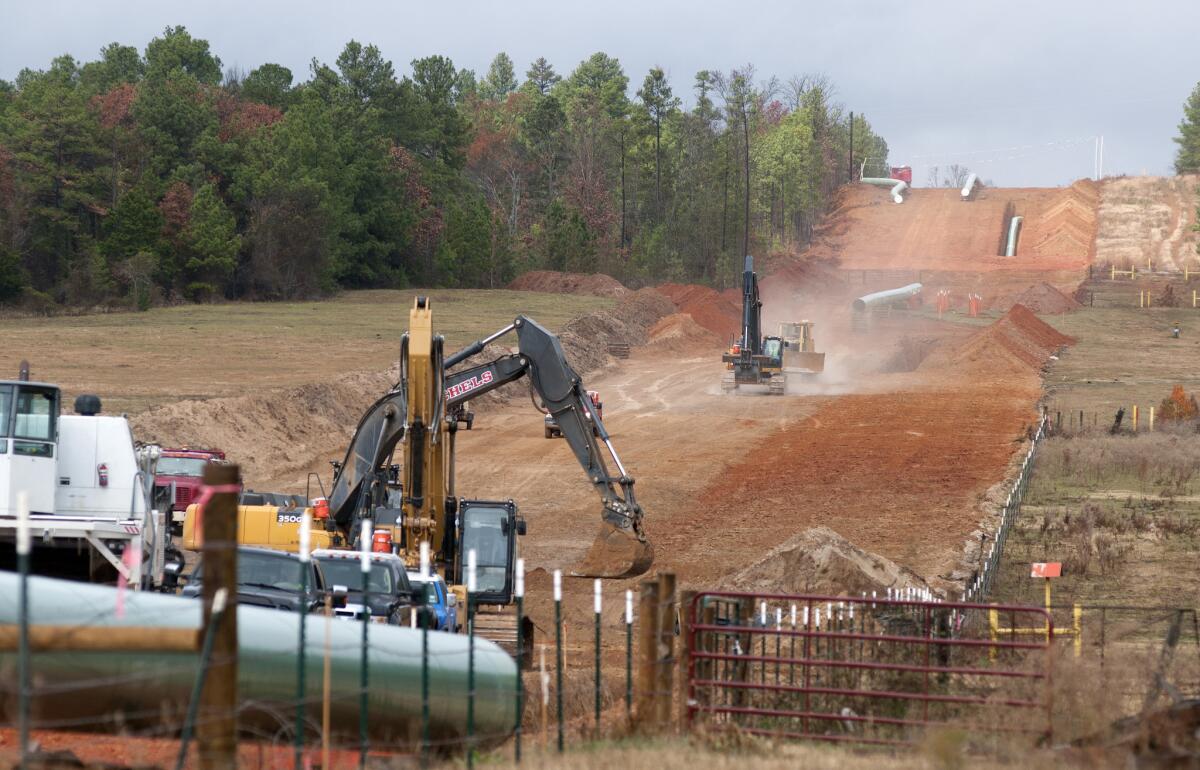Keystone XL pipeline remains blocked in Supreme Court order

- Share via
The U.S. Supreme Court refused to let construction start on TC Energy Corp.’s Keystone XL oil-sands pipeline, rejecting a bid by President Trump’s administration to jump-start the long-delayed project.
The justices, without explanation or noted dissent, left in force part of a federal court order that blocks use of a key federal permit. Although the justices cleared the way for other oil-and-gas pipeline construction projects to use the permit, they refused to do so for Keystone XL.
The rebuff means almost all Keystone XL construction is delayed until 2021, according to court papers filed by TC Energy. The company told the high court that lifting the order probably would have let construction start by August on the pipeline, which would carry more crude than some OPEC members produce.
“TC Energy remains committed to the future of this project,” the company said in a statement. “We will continue to evaluate our 2020 U.S. scope. In Canada, our work in 2020 remains unchanged.”
U.S. District Judge Brian Morris’ order, which concerned a nationwide permit the Army Corps of Engineers uses to approve water crossings, required projects across the country to seek more time-consuming and expensive individual permits.
The Trump administration urged the court to block Morris’ order while the case is on appeal. The rejection is a setback for the government of the oil-dependent Canadian province of Alberta, which has committed $5.3 billion to help fund the pipeline’s construction.
Keystone XL is a key project for Canadian oil-sands producers that have been hamstrung for years by a lack of pipeline capacity. The line would help carry 830,000 barrels of crude a day along a 1,200-mile, route from the Alberta oil hub of Hardisty to Steele City, Neb. From there, the oil would travel to U.S. Gulf Coast refineries that are geared to process the heavy oil-sands crude.
The project has been on TC Energy’s drawing board for more than a decade after being repeatedly stalled by opposition from landowners and environmentalists who say it will contribute to catastrophic climate change. President Obama rejected the pipeline’s border-crossing permit in 2015, a decision that Trump reversed shortly after taking office.
Alberta’s government announced its investment in Keystone XL in March to help finance the $8-billion project’s construction. The aid consists of a $1.1-billion investment and a $4.2-billion loan guarantee. TC Energy will fund the remaining $2.7 billion. TC has projected the line could enter service in 2023.
The case is U.S. Army Corps of Engineers vs. Northern Plains Resource Council, 19A1053.
More to Read
Inside the business of entertainment
The Wide Shot brings you news, analysis and insights on everything from streaming wars to production — and what it all means for the future.
You may occasionally receive promotional content from the Los Angeles Times.










